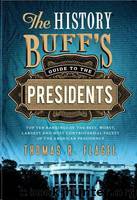History Buff's Guide to the Presidents by Thomas R. Flagel

Author:Thomas R. Flagel [Flagel, Thomas R.]
Language: eng
Format: epub
Tags: Biographies & Memoirs, Historical, United States, Leaders & Notable People, Presidents & Heads of State, U.S. Presidents, History, Americas, Historical Study & Educational Resources, Reference, Politics & Social Sciences, Politics & Government, Political Science, History & Theory, Executive Branch, Encyclopedias & Subject Guides, Historical Study, Federal Government
ISBN: 9781402271434
Amazon: B008BWACQQ
Publisher: Cumberland House
Published: 2012-08-01T16:00:00+00:00
He ran for office as an ardent anticommunist, and his inaugural address affirmed his oath to fight Marxism anytime, anywhere. After the fiasco of the Bay of Pigs, however, Kennedy learned to temper his aggression, relying instead on modest troop buildups and huge nuclear stockpiles to demonstrate American might.
But after the failed Bay of Pigs, Kennedy began to look toward Saigon, and its aggressively anticommunist government, as the best possible opportunity to score a low-cost victory against Moscow and erase the embarrassment of Cuba. A show of force was needed somewhere to prove he had the military chutzpa to back up his doctrine, a pledge he made on his first day on the job.
Proof that Americans are unpredictable when it comes to foreign policy, Jack Kennedy’s public approval rating hit a peak of 83 percent immediately after the failed Bay of Pigs invasion.
7. NIXON DOCTRINE (1969)
Richard Nixon campaigned in 1968 on the premise he could bring “peace with honor” to the Vietnam conflict. He failed to do either. But he did implement a new method of battling communism that would become the U.S. modus operandi for the remainder of the Cold War.
July 25, 1969—Nixon was in Guam after meeting the returning crew of Apollo XI. In a small press conference, he mentioned a change in the way the United States would help friendly nations face external threats. Instead of sending troops, the United States would just send money, ordnance, and equipment. It was up to the nations themselves, he said, to supply the manpower. The idea was not unlike FDR’s LEND-LEASE program at the start of the Second World War. “I made only one exception,” Nixon stated in his memoirs, “in case a major nuclear power engaged in aggression against one of our allies or friends, I said that we would respond with nuclear weapons.”14
Many citizens, including Senate majority leader Mike Mansfield, interpreted this to be the Vietnam exit strategy promised by the president. Nixon abruptly corrected them. The doctrine “was not a formula for getting America out of Asia,” Nixon later wrote, “but one that provided the only sound basis for America’s staying in and continuing to play a responsible role.” He emphasized that point in a nationwide televised address on November 3, 1969, in what became known as his “Great Silent Majority” speech. The public reaction was overwhelming. Never before had the White House mailroom received so many letters and telegrams—eighty thousand in the course of a few days. Nearly all supported Nixon in full. An ensuing Gallup Poll registered a 77 percent approval rating for the president.15
Another four years would pass before troops were withdrawn from Southeast Asia. In the interim, the United States funneled an increasing amount of money and material into Saigon. By 1973, most of the weapons, aircraft, and ships in the South Vietnam armed forces were American-made. But all that firepower could not save a government that was, at best, dysfunctional.
Sound policy or not, Nixon applied his doctrine in other areas of the world, especially the Middle East.
Download
This site does not store any files on its server. We only index and link to content provided by other sites. Please contact the content providers to delete copyright contents if any and email us, we'll remove relevant links or contents immediately.
Fanny Burney by Claire Harman(26591)
Empire of the Sikhs by Patwant Singh(23066)
Out of India by Michael Foss(16842)
Leonardo da Vinci by Walter Isaacson(13304)
Small Great Things by Jodi Picoult(7112)
The Six Wives Of Henry VIII (WOMEN IN HISTORY) by Fraser Antonia(5493)
The Wind in My Hair by Masih Alinejad(5085)
A Higher Loyalty: Truth, Lies, and Leadership by James Comey(4946)
The Crown by Robert Lacey(4801)
The Lonely City by Olivia Laing(4796)
Millionaire: The Philanderer, Gambler, and Duelist Who Invented Modern Finance by Janet Gleeson(4457)
The Iron Duke by The Iron Duke(4345)
Papillon (English) by Henri Charrière(4251)
Sticky Fingers by Joe Hagan(4184)
Joan of Arc by Mary Gordon(4091)
Alive: The Story of the Andes Survivors by Piers Paul Read(4017)
Stalin by Stephen Kotkin(3955)
Aleister Crowley: The Biography by Tobias Churton(3628)
Ants Among Elephants by Sujatha Gidla(3458)
